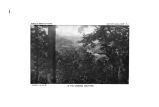| OCR Text |
Show 172 MYTHS OF THE CHEROKEE [ ETH. ANN. 19 pox from an infected camp near Knoxville. ShorthT after his return he became sick and soon died. As the characteristic pustules had not appeared, the disease seeming to work inwardly, the nature of his sickness was not at first suspected- smallpox having been an unknown disease among the Cherokee for nearly a century- and his funeral was largely attended. A week later a number of those who had been present became sick, and the disease was recognized by Colonel Thomas as smallpox in all its virulence. It spread throughout the tribe, this being in the early spring of 1866, and in spite of all the efforts of Thomas, who brought a doctor from Tennessee to wait upon them, more than one hundred of the small community died in consequence. The fatal result was largely due to the ignorance of the Indians, who, finding their own remedies of no avail, used the heroic aboriginal treatment of the plunge bath in the river and the cold- water douche, which resulted in death in almost every case. Thus did the war bring its harvest of death, misery, and civil feud to the East Cherokee. 1 Shortly after this event Colonel Thomas was compelled by physical and mental infirmity to retire from further active participation in the affairs of the East Cherokee, after more than half a century spent in intimate connection with them, during the greater portion of which time he had been their most trusted friend and adviser. Their affairs at once became the prey of confusion and factional strife, which continued until the United States stepped in as arbiter. In 1868 Congress ordered another census of the East Cherokee, to serve as a guide in future payments, the roll to include only those persons whose names had appeared upon the Mullay roll of 1848 and their legal heirs and representatives. The work was completed in the following year by S. H. Sweatland, and a payment of interest then due under former enactment was made by him on this basis.* " In accordance with their earnestly expressed desire to be brought under the immediate charge of the government as its wards," the Congress which ordered this last census directed that the Commissioner of Indian Affairs should assume the same charge over the East Cherokee as over other tribes, but as no extra funds were made available for the purpose the matter was held in abeyance. 8 An unratified treaty made this year with the Cherokee Nation west contained a stipulation that any Cherokee east of the Mississippi who should remove to the Cherokee nation within three years should be entitled to full citizenship and privileges therein, but after that date could be admitted only by act of the Cherokee national council. 4 After the retirement of Thomas, in the absence of any active » Author's information from Colonel Thomas and others. Various informants have magnified the number of deaths to several hundred, but the estimate here given, obtained from Thomas, is probably more reliable. sRoyce, Cherokee Nation, Fifth Ann. Rep. Bureau of Ethnology, p. 314,1888. 3Commissioner F. A. Walker, Report of Indian Commissioner, p. 25,1872. * Royce, op. citM p. 353. / |































































































































































































































































































































































































































